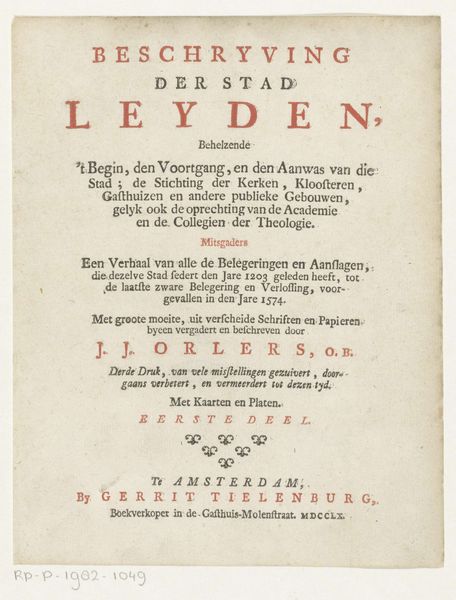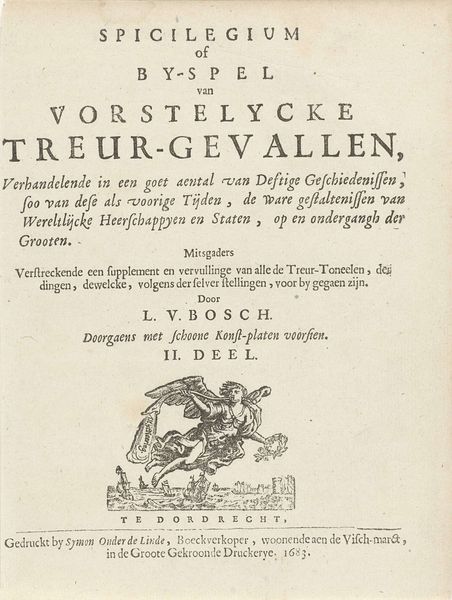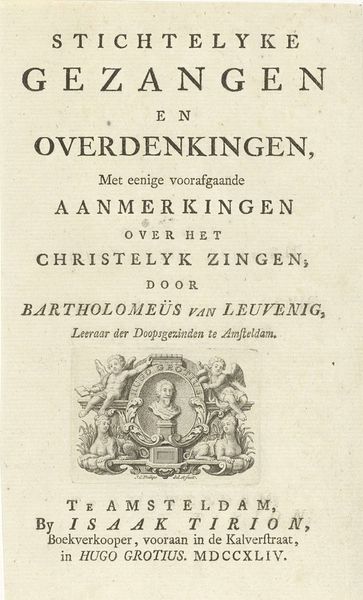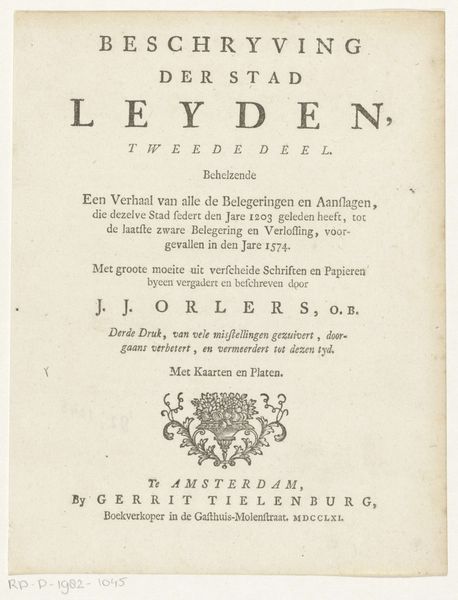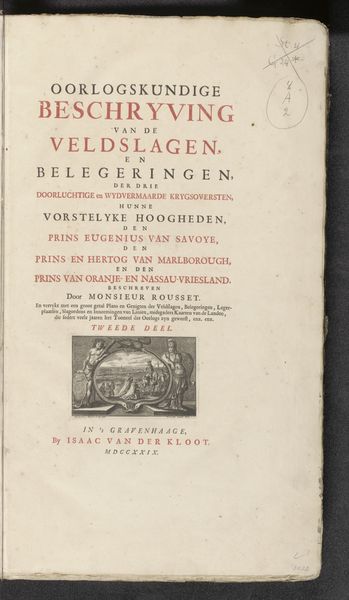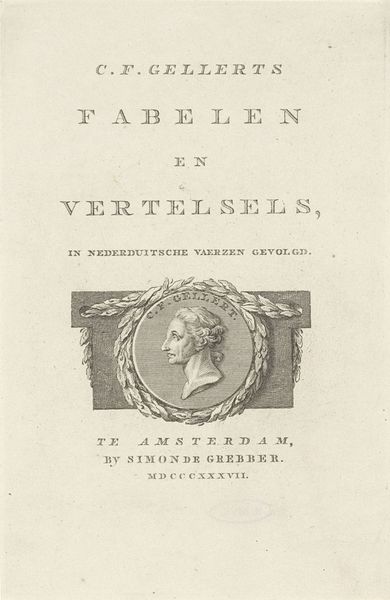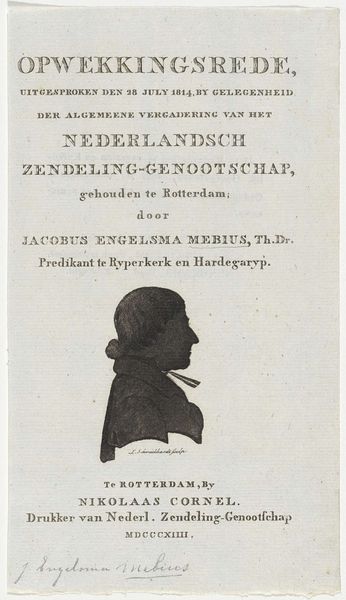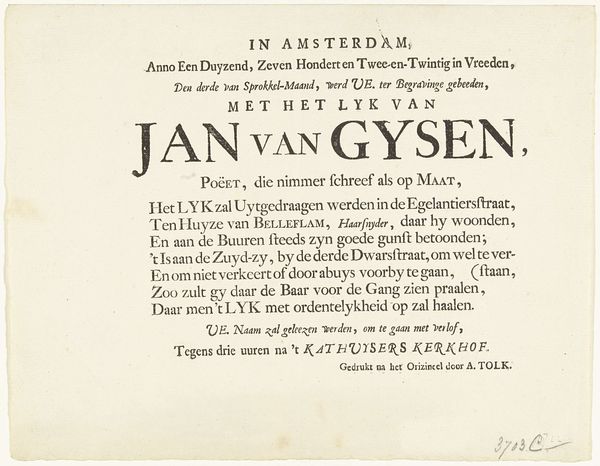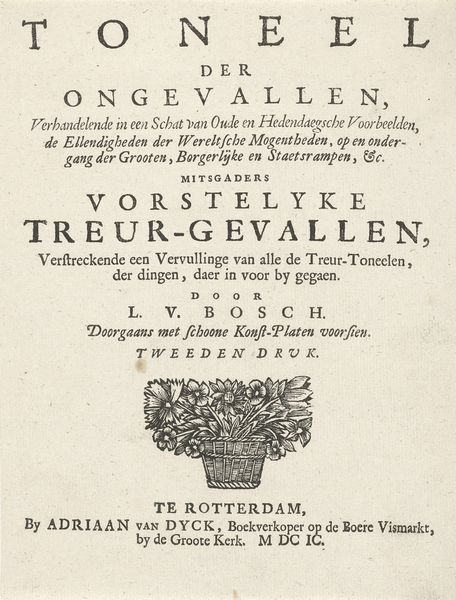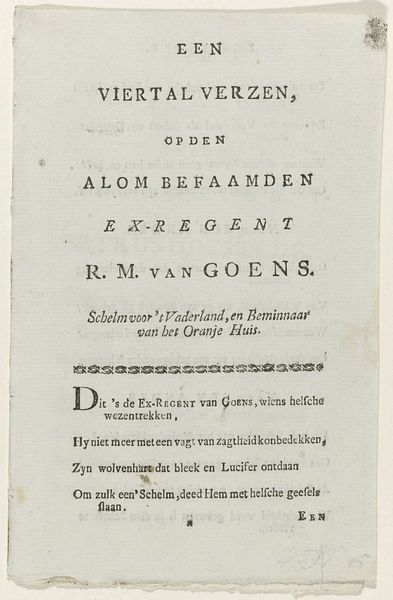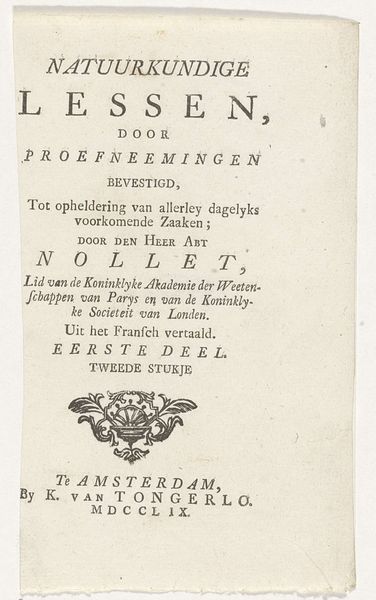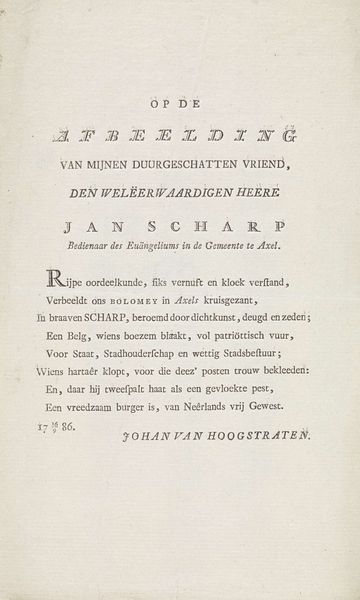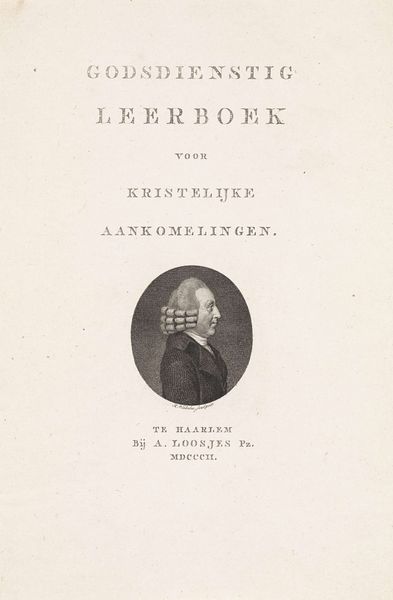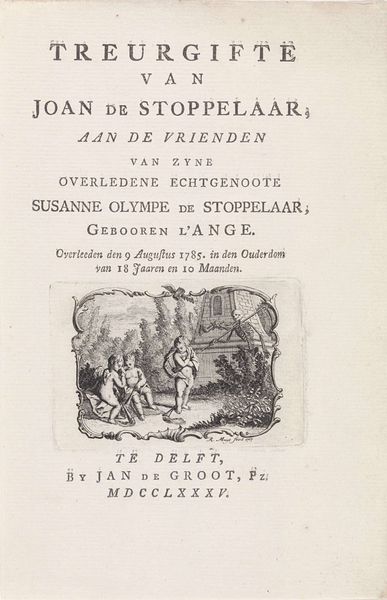
print, engraving
# print
#
old engraving style
#
pencil drawing
#
engraving
Dimensions: height 237 mm, width 152 mm
Copyright: Rijks Museum: Open Domain
This engraving of James Thomson was made by Reinier Vinkeles in Amsterdam in 1787. Vinkeles expertly utilized the technique of etching to create this print. Etching involves coating a metal plate with a waxy, acid-resistant substance known as a ground. The artist then draws through the ground with a pointed tool, exposing the metal beneath. When the plate is immersed in acid, the exposed lines are etched into the metal. The depth and width of the lines can be controlled by varying the concentration of the acid and the amount of time the plate is exposed. The plate is then inked, and the surface wiped clean, leaving ink only in the etched lines. Finally, the print is made by pressing paper against the plate. Look closely, and you’ll see how Vinkeles varied his marks to create areas of light and shadow. The detailed craftsmanship and artistry involved in this reproductive technique elevates it beyond mere duplication, blurring the lines between craft and fine art.
Comments
No comments
Be the first to comment and join the conversation on the ultimate creative platform.
